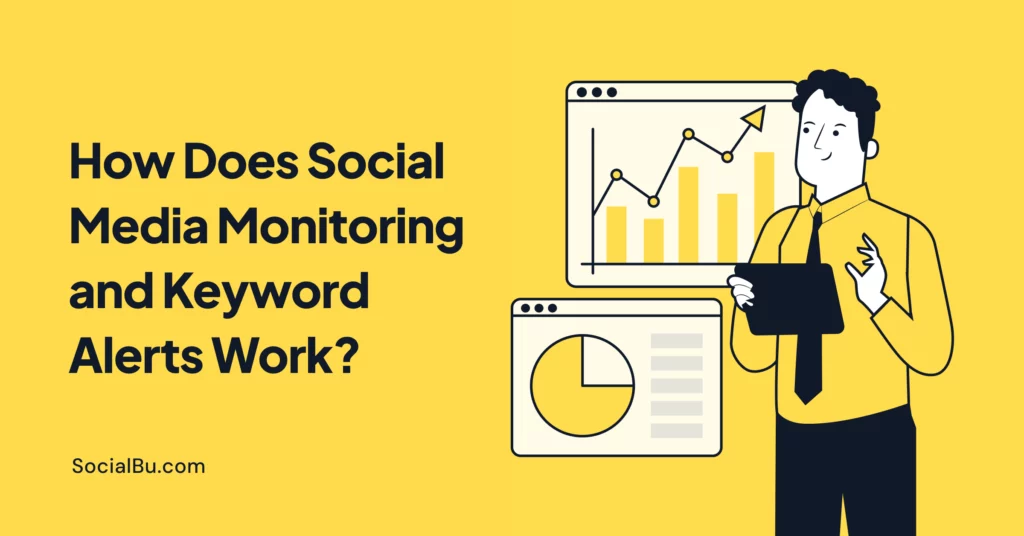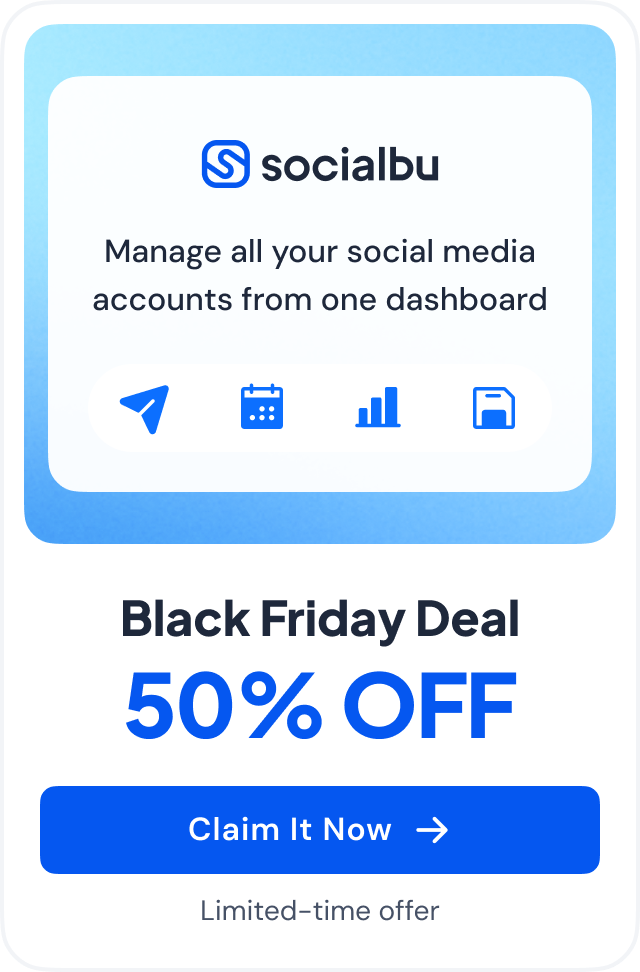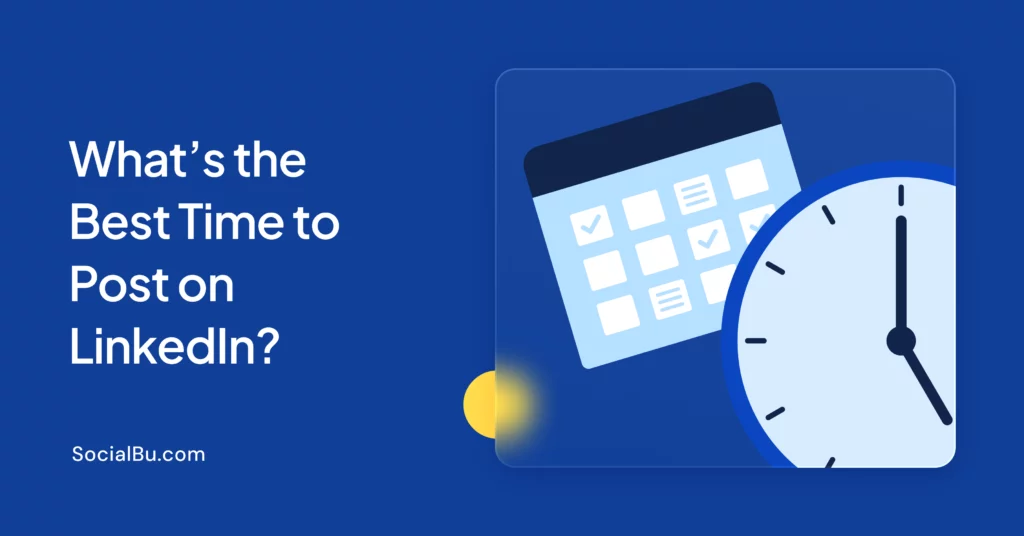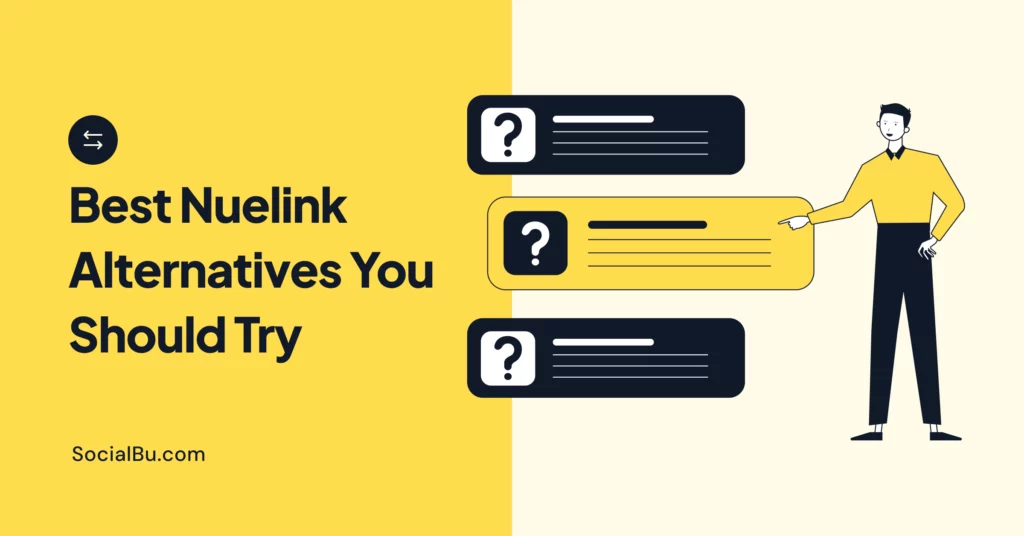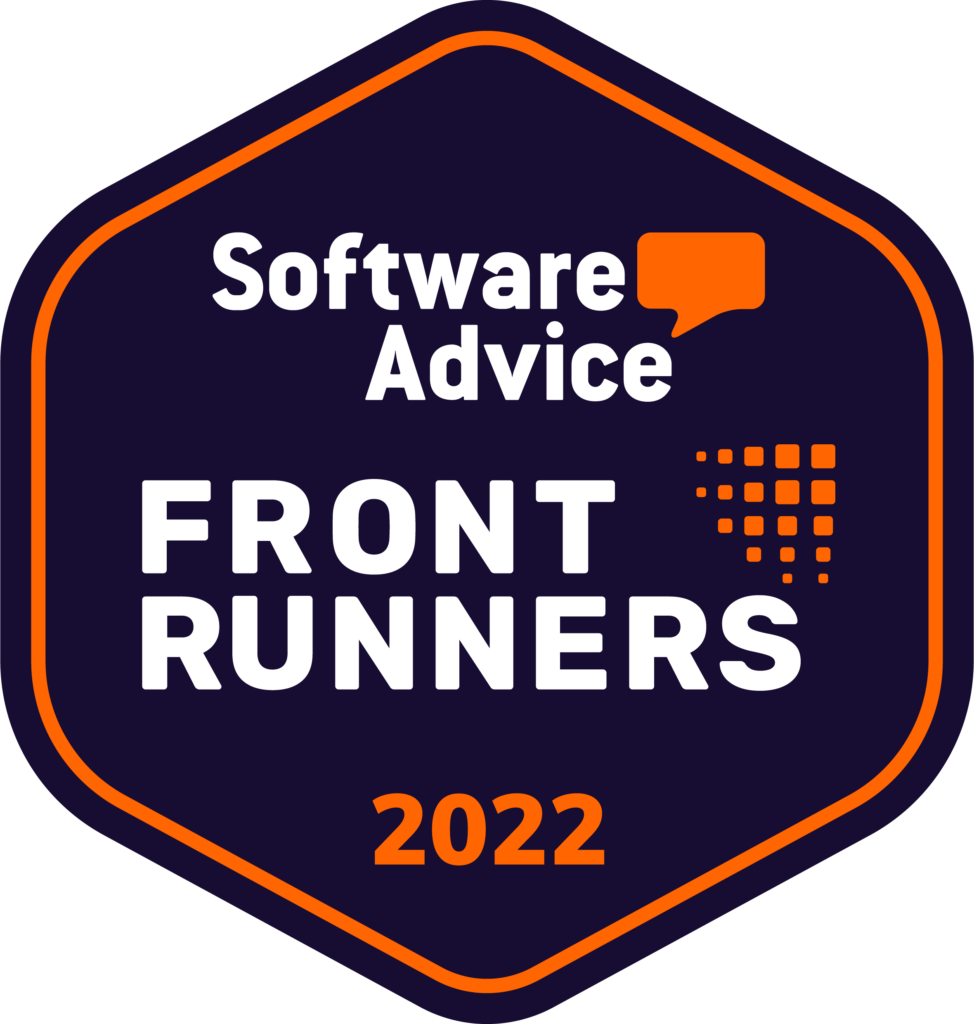Imagine this.
You launch a new product. You’re proud of it. You post it on Instagram, tweet it, and even run some ads. But a few days later, your team notices something strange: people are talking about it online… and not all of it is good.
Some love it. Others are confused. A few even have serious complaints. But you had no idea, because no one told you directly.
The worst part? A competitor saw those posts, jumped into the conversation, and started offering their product instead.
That’s the real power (and danger) of social media today. If you’re not listening, you’re losing. This is where social media monitoring becomes important.
By using the right social media monitoring tools, you can track brand mentions, watch what your competitors post, and set up smart keyword alerts that notify you the second someone talks about your brand or product.
In this blog, you’ll learn exactly:
What social media monitoring is, how keyword alert setup works, and the mistakes to avoid so you don’t miss what matters most.
Let’s make sure you never miss another conversation again.
TL;DR – Social Media Monitoring
- Social media monitoring tracks mentions of your brand, product, or competitors.
- Use tools like Socialbu, Mention, Brand24, or Hootsuite for real-time alerts.
- Set up keyword alerts to stay ahead of complaints, trends, and competitors.
- Get notified instantly and respond faster to protect your reputation.
- Avoid common mistakes like tracking too much or replying too late.
- If you’re not listening, your competitors definitely are.
What Is Social Media Monitoring and Why Should You Care?
Social media monitoring means tracking social platforms for mentions of your brand, competitors, industry topics, or specific keywords. It’s like having digital ears on every social media channel, listening to what’s being said in real-time.
This process helps businesses stay informed, react quickly, and make better decisions. Over 55% of marketers intend to boost their spending on social listening tools this year.
Why Social Media Monitoring Matters?
Here are some social media monitoring benefits and why it’s important:
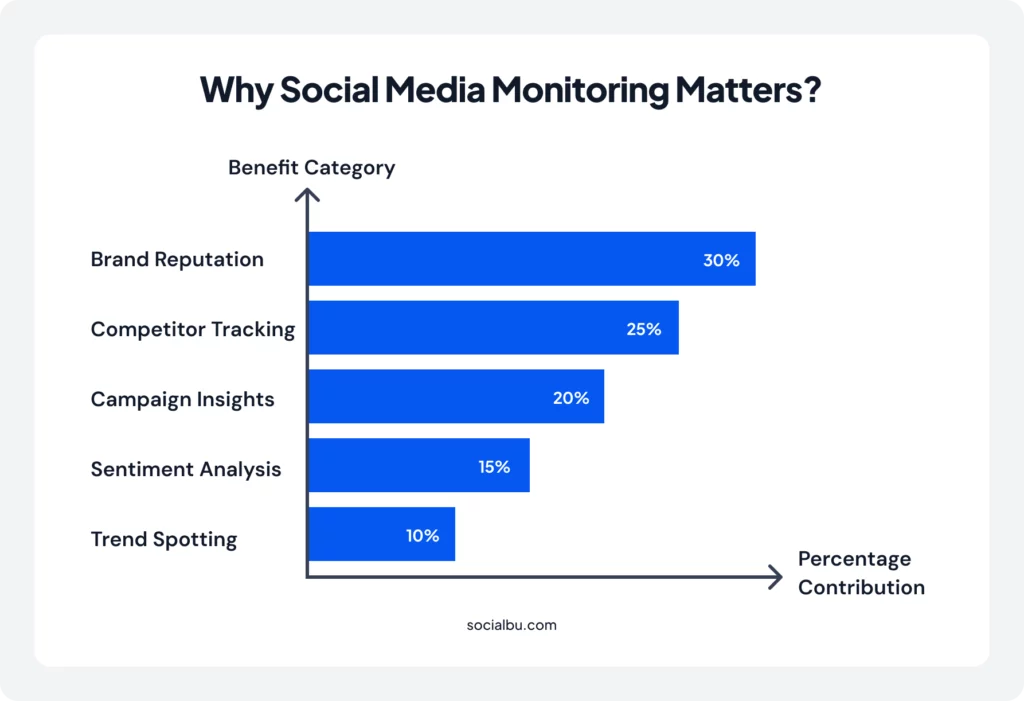
Simply put, it gives you the power to respond faster, connect better, and plan smarter.
How Does Social Media Monitoring Work?
Social media monitoring might sound complicated, but it’s actually pretty simple when you break it down.
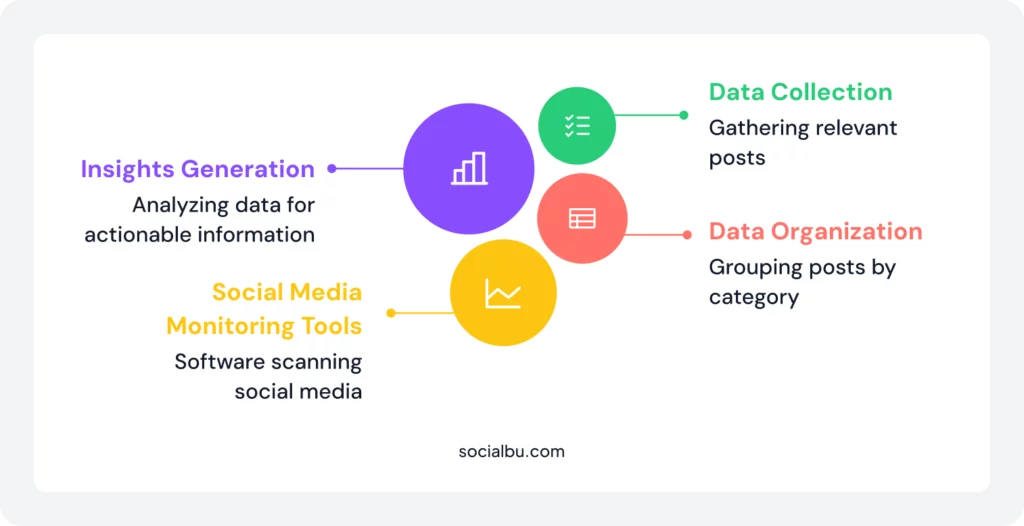
It all starts with social media monitoring tools, which are special software programs that scan the internet for you. They look at places like Facebook, Instagram, Twitter (X), LinkedIn, YouTube, blogs, and even news sites. The tools search for specific keywords, hashtags, or phrases that you choose, such as your brand name, your product, or even your competitors’ names.
Once a tool finds a post that matches your keyword, it does a few helpful things:
- Collects the post – It pulls in the content (like a tweet or comment).
- Organizes the data – It groups posts by topic, platform, or time.
- Shows insights – It tells you things like how many people saw the post, how they felt about it (sentiment tracking), and how much engagement it got (likes, shares, comments).
Example:
Let’s say you want to monitor competitors’ social media and see when people mention your brand. You could set up keyword alerts like:
- Your brand name (e.g., “GlowSkin Serum”)
- A competitor’s name (e.g., “RadiantGlow”)
- A common industry term (e.g., “natural skincare”)
Now, anytime someone mentions one of those on social media, the tool will notify you. This is called real-time social tracking. You can get alerts instantly by email, inside the tool, or even on your phone.
This helps you:
-Respond quickly to questions or complaints
-Join conversations when they happen
-Stay ahead by watching what competitors are doing
It’s like having a smart assistant who listens to the internet for you, 24/7. That way, you never miss a chance to connect with your audience or protect your reputation.
What Happens When You Don’t Monitor
What Are Keyword Alerts (and How Do They Work)?
Keyword alerts are like your digital ears on social media.
They send you an automatic notification when someone uses a specific word or phrase online. These words are often your brand name, your product, your competitor’s name, or even a topic related to your industry. It’s a powerful part of social media monitoring that helps you stay in the loop, without having to scroll through every post yourself.
How Keyword Alerts Work (Simple Example):
Let’s say you run a skincare brand called “FreshGlow.” You want to know when people are talking about:
- Your brand name: “FreshGlow”
- A product you sell: “Vitamin C Serum”
- A competitor’s product: “BrightSkin”
- An industry trend: “natural skincare” or “eco-friendly packaging”
So, you open your social media monitoring tool and set up keyword alert setup for all these terms.
Now, whenever someone mentions one of those keywords on platforms like Instagram, Twitter (X), YouTube, or even blogs, you’ll get an alert. That’s what we call real-time social tracking.
What You Can Monitor with Keyword Alerts?
Keyword Type Example What You Can Monitor Brand Name "GlowSkin Serum" Catch customer feedback and mentions. Product Name "Vitamin C Serum" Track specific product conversations. Competitor Name "RadiantGlow" See what customers say about your rivals. Industry Terms "Natural skincare" Join conversations on trending or emerging topics.
Where Do These Alerts Go?
You can choose how you get your alerts:
- By email
- Through the monitoring tool’s dashboard
- As mobile notifications
With the right setup, you’re never out of the loop, even if you’re not glued to social media all day. Keyword alerts are small but mighty. They’re a simple way to listen to your audience, protect your brand, and stay ahead of your competitors.
In the next section, we’ll show you how to set them up step-by-step.
How Do You Set Up Smart Keyword Alerts?
Here’s a simple guide to keyword alert setup:
2: Make a list of important keywords – brand names, hashtags, industry terms, and competitor names.
3: Set filters – You can narrow by location, language, or platform.
4: Activate notifications – Get email alerts, mobile pings, or in-tool updates.
5: Track over time – Watch trends, peaks, and changes in mentions
The smarter your alert setup, the better your topic alerts and insights will be.
What Are the Best Social Media Monitoring Tools Today?
There are many social media monitoring tools out there, but not all of them are the same. Some are better for small businesses, while others are made for big brands with large teams. Below are some of the top tools you can use to track brand mentions, set up keyword alerts, monitor competitors’ social media, and do real-time social tracking.
Top Social Media Monitoring Tools Comparison
Tool Best For Key Features Ideal For SocialBu Small to mid-size businesses Post scheduling, keyword alerts, competitor monitoring Beginners & SMBs Hootsuite All-in-one social management Scheduling,monitoring, dashboards Mid-size to large teams Brand24 Brand sentiment & analysis Sentiment analysis, brand mentions, alerts Reputation management Mention Real-time keyword tracking Easy setup, monitor your own brand and competitors Simple alert setup Sprout Social Deep analytics Performance reports, campaign tracking Data-focused marketers Talkwalker Advanced listening Real-time tracking, sentiment analysis, and trend detection Enterprise-level teams
Choose the Right Tool for You
Each tool has its own strengths. Your best choice depends on:
- Your budget
- The number of platforms you use
- How deep do you want your social media monitoring and reports to go
Whether you’re just starting or ready for advanced features like alert-based engagement and sentiment tracking, there’s a tool that fits your needs.
What Are the Pitfalls to Avoid in Social Monitoring?
Here are a few common mistakes:
- Tracking too many keywords
- Not setting clear goals
- Ignoring sentiment
- Responding too slowly
- Using the wrong tool
Avoiding these mistakes can make your social media monitoring much more effective.
Ready to Master Social Media Monitoring?
If you want to grow your brand, connect with your audience, and stay ahead of the competition, it’s time to take social media monitoring seriously. From tracking mentions to setting up smart alerts, the right tools and tactics can give you a major advantage.
Whether you’re a marketer, business owner, or just curious, start listening. Social media has a lot to say.
Conclusion
Social media doesn’t wait, and neither should you. Whether you’re launching a new product or running a campaign, social media monitoring helps you stay in control of the conversation.
By using the right social media monitoring tools, you can instantly track brand mentions, monitor competitors’ social media, and stay updated through real-time social tracking. Setting up keyword alerts is quick and easy, and it gives you a huge advantage when it comes to sentiment tracking, alert-based engagement, and catching topic alerts before they go viral
Don’t let important conversations (or complaints) slip by unnoticed. Smart keyword alert setup lets you respond faster, plan better, and connect more deeply with your audience. So, if you’re ready to improve your brand listening, keep up with trends, and level up your campaign monitoring, it’s time to put social media monitoring to work.
Start listening today, because if you’re not listening, your competitors are.
FAQs
Q: How do I set up keyword alerts on social media?
You can set up keyword alerts using social media monitoring tools like SocialBu, Mention, or Brand24. Just enter the keywords you want to track (brand name, product, competitor, etc.), choose your platforms, and turn on notifications by email, mobile, or dashboard.
Q: What tools track social mentions in real time?
Tools like Socialbu, Mention, Brand24, Talkwalker, and Hootsuite offer real-time tracking of brand mentions, hashtags, and keywords across platforms like Twitter (X), Instagram, blogs, and news sites.
Q: Can I monitor competitor posts automatically?
Yes, most monitoring tools let you track your competitors’ social media automatically. Just add their brand or product names as keywords, and you’ll be alerted when they’re mentioned or post content.
Q: Is keyword alerting useful for crisis management?
Absolutely. Keyword alerts can catch early signs of a crisis, like customer complaints, negative reviews, or PR issues, so you can respond quickly and protect your brand reputation before it escalates.
